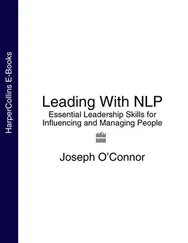John Gray - Children Are from Heaven - Positive Parenting Skills for Raising Cooperative, Confident, and Compassionate Children
Здесь есть возможность читать онлайн «John Gray - Children Are from Heaven - Positive Parenting Skills for Raising Cooperative, Confident, and Compassionate Children» весь текст электронной книги совершенно бесплатно (целиком полную версию без сокращений). В некоторых случаях можно слушать аудио, скачать через торрент в формате fb2 и присутствует краткое содержание. Год выпуска: 1999, ISBN: 1999, Издательство: HarperCollins e-books, Жанр: psy_childs, sci_pedagogy, Психология, на английском языке. Описание произведения, (предисловие) а так же отзывы посетителей доступны на портале библиотеки ЛибКат.
- Название:Children Are from Heaven: Positive Parenting Skills for Raising Cooperative, Confident, and Compassionate Children
- Автор:
- Издательство:HarperCollins e-books
- Жанр:
- Год:1999
- ISBN:978-0-06-133886-1
- Рейтинг книги:4 / 5. Голосов: 1
-
Избранное:Добавить в избранное
- Отзывы:
-
Ваша оценка:
- 80
- 1
- 2
- 3
- 4
- 5
Children Are from Heaven: Positive Parenting Skills for Raising Cooperative, Confident, and Compassionate Children: краткое содержание, описание и аннотация
Предлагаем к чтению аннотацию, описание, краткое содержание или предисловие (зависит от того, что написал сам автор книги «Children Are from Heaven: Positive Parenting Skills for Raising Cooperative, Confident, and Compassionate Children»). Если вы не нашли необходимую информацию о книге — напишите в комментариях, мы постараемся отыскать её.
Children Are from Heaven: Positive Parenting Skills for Raising Cooperative, Confident, and Compassionate Children — читать онлайн бесплатно полную книгу (весь текст) целиком
Ниже представлен текст книги, разбитый по страницам. Система сохранения места последней прочитанной страницы, позволяет с удобством читать онлайн бесплатно книгу «Children Are from Heaven: Positive Parenting Skills for Raising Cooperative, Confident, and Compassionate Children», без необходимости каждый раз заново искать на чём Вы остановились. Поставьте закладку, и сможете в любой момент перейти на страницу, на которой закончили чтение.
Интервал:
Закладка:
TEENAGER: You can’t make me.
ME: I want you to go in the next room and take a time out for fifteen minutes.
TEENAGER: You are a wimp, you can’t make me.
ME: I want you to go in the next room and take a time out for fifteen minutes.
TEENAGER: What are you going to do if I don’t?
ME: I want you to go in the next room and take a time out for fifteen minutes.
He made an expression of disgust and walked away into the other room.
After about fifteen minutes, I went into the other room and, in a friendly manner, said, “If you want to join us, you are welcome, but if you need more time alone, I will certainly understand.”
He silently nodded his head as if he would think about it. I left the room in a friendly way, and a few minutes later he came out and joined the group. This experience was great preparation for successfully dealing with the inevitable resistance I encountered with my own children.
You can see that if I had reacted to his comments or answered any of the questions, my position would have weakened. Ultimately, every child, until ready to leave home, needs parents to assert leadership and be the boss.
Ultimately, when faced with a caring adult whose commands are clear, an unruly child will eventually yield without threats or disapproval.
REASONS AND RESISTANCE
When children continue to resist going to bed, giving reasons doesn’t help. Telling them it is late or they need their sleep is not going to win them over, nor will it teach them anything. If children ask “why” and they are not being argumentative, then explanations are useful, but they are counterproductive at times when children are resisting. At a certain point, the only good reason they should do something is because you are the parent. I remember getting a funny T-shirt for my wife with this message. It said, “Because I am the parent, that’s why.”
“Because I am the parent, that’s why”
is the best response to children’s challenge
to commands.
Teenagers will often drive their parents to the limits of frustration. They will question and challenge whatever a parent commands. Parents try to be reasonable and lose.
Children and teenagers just keep asking why, yet each time you answer, you become weaker. With each answer, you get further and further away from your true power. All they have to do is keep asking, which is what they do.
Let’s explore an example. Carol wants to watch TV, and her mother wants her to do homework.
MOTHER: Carol, I want you to turn off the TV.
CAROL: Why?
MOTHER: You need more time to do your homework.
CAROL: I don’t have any homework today.
MOTHER: But you have projects due and you wait to the last minute and then complain that you have too much to do. If you don’t have homework, then this is a good time to get ahead on your science project.
CAROL: I’ve done everything I can. I can’t do anymore until I get the pictures developed and that will be several more days.
MOTHER: Well, you have been watching too much TV.
CAROL: No, I haven’t.
MOTHER: Yes, you have. You have been sitting here all afternoon.
CAROL: You haven’t even been here to know. You just got back.
MOTHER: Yes, and you were watching TV before I left.
CAROL: But I wasn’t watching TV all this time.
MOTHER: Sitting in front of the TV too much is not good for you. You should get outside. It is a beautiful day.
CAROL: I don’t want to go outside. My legs are sore from gym today.
MOTHER: You had better listen to me, young lady. You are going to lose all your TV privileges if you don’t watch out.
CAROL: You are so mean and unfair.
MOTHER: You are this close to being grounded with no TV.
CAROL: I don’t care.
MOTHER: Okay then, you are grounded for two weeks with no TV.
These kinds of arguments and fights can be avoided if parents don’t get off the track trying to convince children or teenagers of the merits of what they are saying. If children or teenagers are receptive to your ideas, it is different, but, if they are resistant to your request, they will continue to resist your ideas even though they may be good.
Here is an example of what a mother using positiveparenting skills could do to avoid fighting or arguing with her teenager or child.
A BETTER WAY OF COMMANDING
Step 1: Ask (Don’t order)
MOTHER: Carol, would you turn off the TV?
CAROL: Why? This is a great movie.
MOTHER: What is it?
CAROL: It’s Sherlock Holmes.
MOTHER: That is a great movie (pause), but I want you to turn off the TV. You’ve been watching a lot of TV lately, and I want you to do something else.
CAROL: Like what?
MOTHER: You could work on your homework or do something outside.
CAROL: I don’t want to. I just want to watch my show, and you are disturbing me.
Step 2: Listen and Nurture (Don’t Lecture)
MOTHER: I understand that you just want to watch your show and you don’t want to do homework or go outside (pause), but I want you to turn off the TV and find something else to do.
CAROL: I don’t want to.
MOTHER: I know it is disappointing, but now it is time to do something else.
CAROL: But I will miss the rest of my show.
MOTHER: I’m sure it will be on again soon.
CAROL: No, it won’t.
Step 3: Reward (Don’t Punish)
MOTHER: If you turn off the TV now, then I will take you to get a video tomorrow.
CAROL: I don’t care about renting a video. I just want to watch my show.
Step 4: Command (Don’t Explain or Get Upset)
MOTHER: I want you to turn off the TV now.
CAROL: But I don’t have anything else to do.
MOTHER: I want you to turn off the TV now.
Carol gets up and turns off the TV. She storms out of the room. About fifteen minutes later, she comes back, acting like nothing happened and asks to play cards. Her mother happily agrees. No mention is made of the little battle. All is forgotten and forgiven.
INCREASING COOPERATION
The result of using positive-parenting skills is that your children will be more cooperative in the future, instead of — as the result of arguing, fighting, and punishing — increasing resistance, which gradually turns into unhealthy resentment, rejection and rebellion. When you command your children using emotion, logic, reasons, argument, or threat, it only weakens your position and strengthens their resistance in the long run.
When you use these first four steps of positive parenting gradually over time, you only need to ask and your children will cooperate most of the time. Inevitably, those times will surface again and again when you may need all four skills.
As you use these four skills, they become easier. Not only do they work to create cooperation, but they become clear and definite ways to nurture your children to be their personal best.
If it seems like a lot of work, that is just because it is new. Learning any new skill can be a bit overwhelming, but with a little practice it becomes easy and automatic. Raising children is always challenging, regardless of the child.
Positive parenting is not any more difficult. In the long run, it is much more fulfilling and effective as well.
Being a parent is filled with waves of challenge. We can either surf those waves or get knocked around again and again. Commanding our children may seem a little tough for some soft-love parents, but it is the clear and positive alternative to demanding our children into obedience with threats and shame.
CHOOSING YOUR BATTLES
Интервал:
Закладка:
Похожие книги на «Children Are from Heaven: Positive Parenting Skills for Raising Cooperative, Confident, and Compassionate Children»
Представляем Вашему вниманию похожие книги на «Children Are from Heaven: Positive Parenting Skills for Raising Cooperative, Confident, and Compassionate Children» списком для выбора. Мы отобрали схожую по названию и смыслу литературу в надежде предоставить читателям больше вариантов отыскать новые, интересные, ещё непрочитанные произведения.
Обсуждение, отзывы о книге «Children Are from Heaven: Positive Parenting Skills for Raising Cooperative, Confident, and Compassionate Children» и просто собственные мнения читателей. Оставьте ваши комментарии, напишите, что Вы думаете о произведении, его смысле или главных героях. Укажите что конкретно понравилось, а что нет, и почему Вы так считаете.












